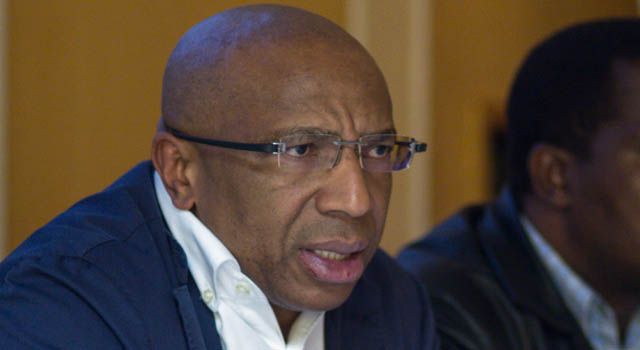
News that Telkom may write down the value of its legacy network infrastructure is positive, analysts say. Not only will it bring its balance sheet “in line with reality”, but is indicative of a board of directors looking after an embattled company’s best interests, they say.
On Tuesday, Telkom told shareholders that its board is considering impairing the carrying value of the group’s legacy network. However, it’s unwilling at this stage to hazard a guess as to the quantum of the potential financial writedown, which would involve taking an accounting charge through its income statement.
Newly appointed group CEO Sipho Maseko says impairing the legacy network assets “will draw a clear line between the historic position of Telkom and our future as network provider of high-speed, quality broadband”.
“In effect, such a decision will allow us to ‘reset our base’ and be competitive,” Maseko says. “It will also send a clear message to our stakeholders that we are prepared to take bold action to ensure that Telkom is positioned to succeed.”
Chris Gilmour, investment analyst at Absa Asset Management Private Clients, says it’s “incumbent upon Telkom to make the balance sheet reflect reality”. Telkom’s assets, particularly its copper and fibre networks, remain “incredibly valuable”, even if people think much of the network is antiquated. “The question is, how do you value it?”

Gilmour says Telkom hasn’t utilised its network assets to their full potential and has become “distracted” with “ill conceived” moves like its attempted entry into the Nigerian market and its mobile venture, 8ta.
“Impairment is an excellent idea,” Gilmour adds. It’s indicative of a company “getting back to basics”.
The mooted impairment suggests Telkom’s board is saying to government that it intends acting in the best interests of the company. The initiative most likely stems from Telkom chief financial officer, Jacques Schindehütte, who should be lauded for it, Gilmour says.
“Telkom has a new CEO, so it may as well throw the kitchen sink at its earnings and give the newcomer a nice low base to work off,” says another analyst, who asks not to be named because of company policy on being quoted in the media.
“Maseko can attribute the loss to a decision that preceded his tenure. It will make a difference to the books.”
But, adds Gilmour, the move “won’t make Telkom’s problems go away”.
“This is a company struggling with strategy. Still, this move to getting in touch with reality is good.”
Telkom needs to be “more innovative” in encouraging uptake and use of its fixed-line services, says Gilmour. “It needs to encourage people to use the wretched things. The landline network is seriously underutilised because it’s expensive and it’s not convenient for people. But, with the right offers, Telkom can lock people in and get them loyal.”
What Telkom shouldn’t be doing, according to Gilmour, is “trying to take on two-and-a-half heavily entrenched mobile operators” in a cellular market as saturated as South Africa’s. “They can’t win.”
Gilmour says the proposed impairment is a sign of Telkom “taking things on the chin” and it should be praised for it. “I think it’s hugely positive.” — (c) 2013 NewsCentral Media




